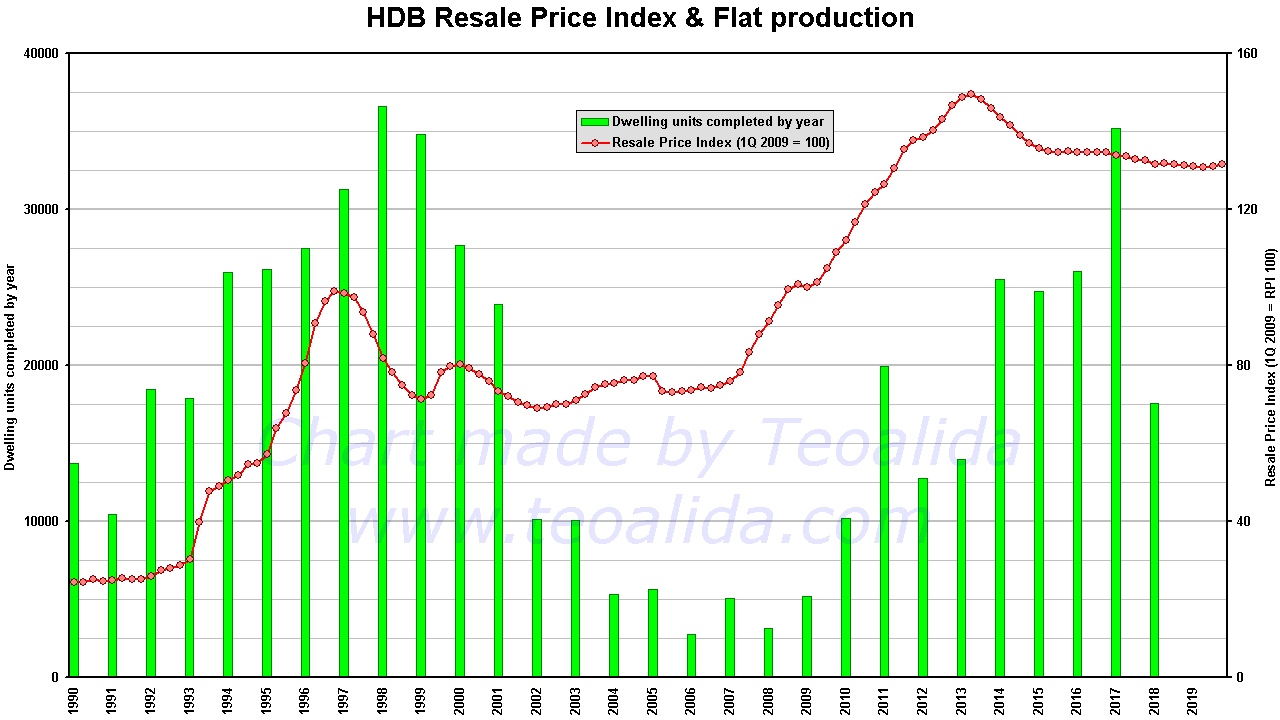http://business.asiaone.com/news/how...onomy/page/0/1
Goh Eng Yeow
The Straits Times
Wednesday, Aug 27, 2014
SINGAPORE - So far, the big debate over the slowdown in the public and private housing markets has focused on whether it is time for the Government to roll back some of the cooling measures that have kept a lid on soaring home prices.
The pressure on this front is coming from various quarters.
For developers, the build-up in unsold property is a matter of concern, as they struggle to move homes amid flagging demand for their new condo projects.
On their part, banks are rightly concerned too. Given the huge sums lent to developers and homebuyers to finance their purchases, they are keeping an eagle eye on the impact on their housing loan book as the market softens.
DBS Bank's chief executive Piyush Gupta, for instance, was quoted as saying that the lender had done a stress test to assess if it could cope with a 30 per cent drop in property prices.
"We see no problem at a 30 per cent fall. If rates rise, there will be marginal borrowers who can't pay, but we don't anticipate a major issue," he said.
However, there is a wider, more significant perspective on the outlook for the property market that should be considered.
It is arguably more important to examine just how the wider economy would fare if there were ever such a precipitous drop in housing prices.
The scenario looks unlikely for now, with house prices slipping only 2.3 per cent between January and June, but it bears scrutiny just the same.
Analysts believe housing prices may fall by 10 per cent to 15 per cent down the road. That means a household which had paid $1 million for a condo at the peak of the market would be $100,000 to $150,000 poorer if that scenario plays out. With a worst-case scenario of a 30 per cent drop, the household would be $300,000 poorer.
Since residential properties make up about 48 per cent of total Singaporean assets, this would mean that a big chunk of wealth here would be wiped out on paper if there is a big drop in price.
It has some economists worrying whether we are too sanguine about the downside risks posed by a falling market - and the impact this has on consumer spending, business confidence and employment.
UBS economist Edward Teather and UBS strategist Maxmillian Lin warned in a recent 16-page report that the safety cushion which Singaporeans have built up on their household balance sheets may be a source of economic risk, rather than resilience, because the balance sheets have been bloated by high house prices.
They noted that at the start of the property up-cycle, more people take up housing loans to buy properties.
This sets off a chain reaction, creating a "wealth effect" which boosts household spending and additional borrowing as people feel richer.
- See more at: http://business.asiaone.com/news/how....QWfvVdFo.dpuf
But when prices are high, the property market may come under downward pressure as the supply of new homes builds up and housing credit slows down.
That may, in turn, spark off a vicious cycle of falling consumer spending and declining employment, which would cause asset prices to fall further and hurt a household's net worth.
The UBS analysts observed that one source of solace regarding the slowing property market is that the household net worth here - at around four times Singapore's GDP - is similar to the wealth levels attained in some other developed economies.
But that is still lower than the equivalent of five times GDP in household wealth accumulated by Americans in the United States in 2006 - the year before the sub-prime mortgage crisis sank the US economy.
Even though Americans had all that wealth on their household balance sheets, this did little to prevent the economic crisis that followed, they noted.
Another concern which they flagged is the often repeated estimate that only about 5 to 10 per cent of borrowers here are over-stretched and that this percentage may rise to between 10 and 15 per cent if mortgage rates rise by 3 percentage points.
Over-borrowing is seen when a borrower has to spend more than 60 per cent of his monthly income to service his debt payments.
The UBS analysts argued that while the percentage of over-stretched borrowers may appear modest even in a worst-case scenario, this should not lull us into a state of complacency.
Using data from the US Mortgage Bankers Association, they noted that at the height of the US housing crisis in August 2008, only 9.2 per cent of all US mortgages were estimated to be delinquent, and that this rose to just 14.4 per cent the following year in September 2009.
This shows that even when a small segment of mortgages sours, it can have a negative impact on the broader market.
They said: "We are not saying Singapore's housing market looks like that of the US in 2007, just that there are pockets of risk which matter."
But the UBS analysts concede that the Government has an arsenal of weapons to combat any slowdown caused by a falling property market.
Apart from easing up on the cooling measures in the property market, the Government may expand its social safety nets further, while a weaker labour market could prompt an easier currency policy.
What they have painted is the hypothetical picture of a falling market.
But for those who hope that prices would fall sharply so that they can pick up their dream property, they should be more careful about what they wish for.
[email protected]
This article was first published on August 25, 2014.
Get a copy of The Straits Times or go to straitstimes.com for more stories.
- See more at: http://business.asiaone.com/news/how....tQ10Gd0k.dpuf




 Reply With Quote
Reply With Quote





